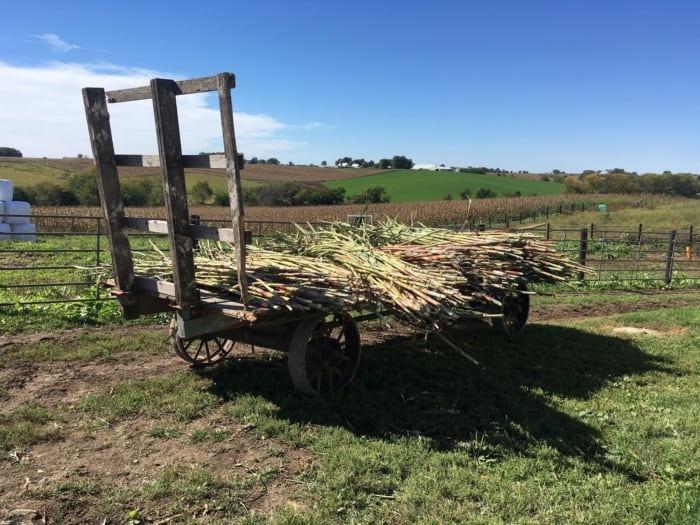
Workshops related to VANG
History of Immigration in the U.S.
All but Native Americans came to the United States from elsewhere—some seeking economic opportunity, some seeking refuge from wars and famine, some seeking religious liberty, and others in bondage as slaves. Then once in the U.S., people moved around in this country, up and down rivers, from coastal regions to the interior, from agricultural to urban areas.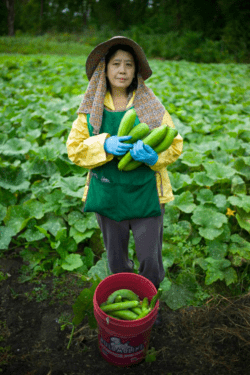
Mary Swander will trace the history of immigration and migration in the United States, giving a short explanation of some of the key historical events, laws, and movements that shaped the demographics of the nation. Swander will discuss how immigration and migration has been an integral part of our food system. She will sketch in the settlement of the Puritans in Massachusetts; the Quakers, Amish, Mennonites in Pennsylvania; the Latinx and Hispanics in the Southwest, and the African-Americans in the South. She will discuss the Homestead Act of 1862, the Chinese Exclusion Act of 1882, The Immigration Act of 1924, and the current immigration policies and requirements for citizenship.
Participants will then work in teams, write and role play a short scene—real or imagined—of a moment of an immigrant journey in the United States. No previous writing experience required. Appropriate for high school ages through seniors.
Verbatim Theatre Workshop
In conjunction with the production of Vang, Mary Swander offers workshops in verbatim theatre—the shaping of drama or performance pieces from interviews and other non-fiction materials. In the workshop, Swander encourages community members to interview each other, creating their oral histories around a theme or idea, whether workers’ rights, agriculture, immigration, or farmland transition. Workshop participants then shape the interview materials into monologues with clear dramatic elements. The class may then arrange these monologues strategically to create their own dramatic production or reader’s theatre
Workshops related to Map of my Kingdom and farmland transition
The Farm Legacy Letter Workshop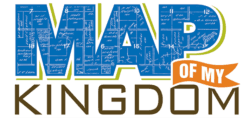
Participants leave with a solid draft of a letter that offers basics about their farmland, their strongest memories, and what they want most for your farmland’s future. The workshop involves three activities, much interaction between workshop participants and sharing of others’ Farm Legacy Letters and, if participants choose, their own letters. The Farm Legacy Letter works for those who have done much transition planning as well as those just starting to think about farm transfer. It is a document with practical information, with “heart and soul” and with vision.
What a Farm Legacy Letter is: · Time/space to reflect and write on your farm’s past, present and future · Help completing a strong draft/finished letter · A document that can help start a conversation with your heirs
What a Farm Legacy Letter is NOT: · A financial or estate plan, a will or codicil to a will · A place to air grievances · Something to file away and end the conversation with your heirs
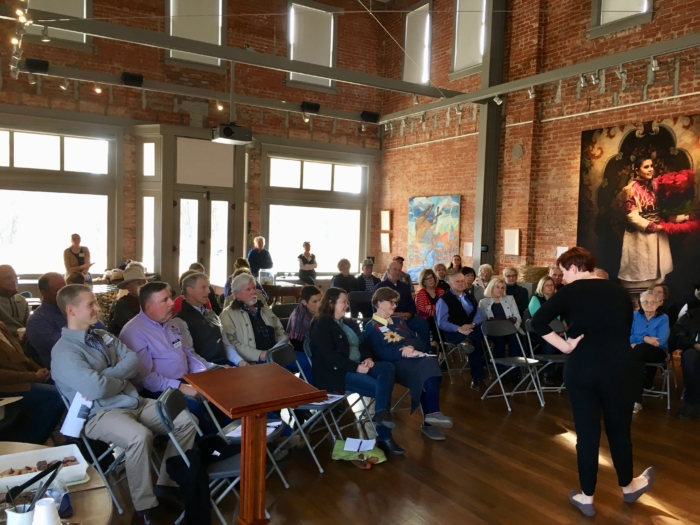
Verbatim Theatre Workshop
In conjunction with the production of Map of my Kingdom, Mary Swander offers workshops in verbatim theatre, the shaping of drama or performance pieces from interviews and other non-fiction materials– from newspaper articles to auction bills In the workshop, Swander encourages community members to interview each other, creating their oral histories around a theme or idea, whether workers’ rights, agriculture, immigration, or farmland transition. Workshop participants then shape the interview materials into monologues with clear dramatic elements. The class may then arrange these monologues strategically to create their own dramatic production or reader’s theatre. 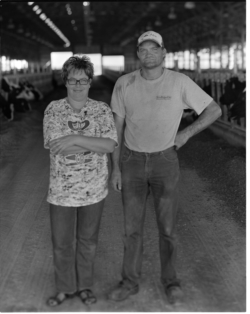
Farm and Ranch Land Transition: Role Playing Workshop
This exercise explores the pressures families face during farm and ranchland transition and how they might find ways to mitigate those tensions. It is designed for farmers and ranch families and those interested in the topic, from high school age students to adults.
In this workshop, Mary Swander discusses some of the family issues that arise with farm and ranchland transition. She brainstorms with the class to map out common family scenarios that often include: the aging parents who want to preserve their way of farming but come into conflict with the younger generation; the farmland owner who has no heirs who want to take over the operation; the family with an on-farm offspring with sweat equity in the operation who wants to take over the farm, but the siblings want to sell all the land and cash out.
Swander then divides the class into groups, each unit taking on a family dynamic. The participants assume the roles of grandparents, parents, siblings, neighbors, and others. They invent the details of their stories and improvise their scenarios. A discussion follows highlighting the ways the families handled their conflicts and reached resolutions. Swander provides the class with easily accessible resources that the participants can use to help them with their transitions.
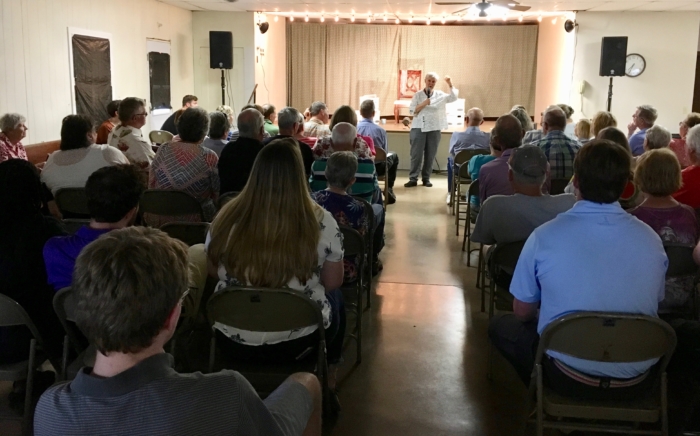 Mary Swander, a Distinguished Professor Emerita at Iowa State University, teaches creative writing in all genres—poetry, fiction, non-fiction, and drama—to students of all ages. She has years of experience teaching K-12 in the Iowa Arts Council’s Artist-in-the-Schools program, and she taught undergraduate and graduate adult writing workshops at ISU from 1986-2016.
Mary Swander, a Distinguished Professor Emerita at Iowa State University, teaches creative writing in all genres—poetry, fiction, non-fiction, and drama—to students of all ages. She has years of experience teaching K-12 in the Iowa Arts Council’s Artist-in-the-Schools program, and she taught undergraduate and graduate adult writing workshops at ISU from 1986-2016.
